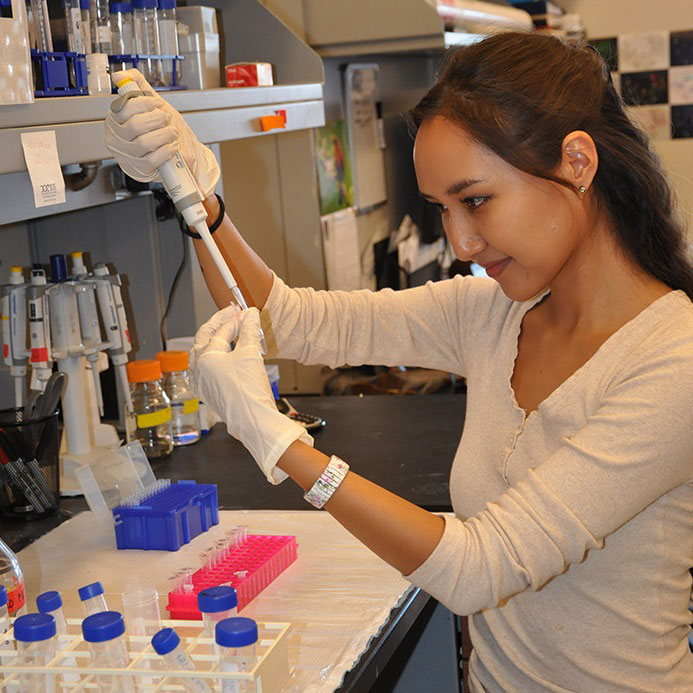Major/concentration and Graduation Year.
Cognitive Science, 2017.5.
Where are you from?
St.Michaels, Arizona
What were your academic interests in high school?
Math and English
What is your favorite activity outside of the classroom?
I really enjoy spending time outdoors running, camping, and hiking. Or just spending a day on the green enjoying the sun. Anything to get the most out of a good day.
Why did you decide to pursue research in brain science?
I have always wondered how it is we can do the things that we do. How do the mind and brain work together to enable a wide range of abilities? While science is constantly in search of the answers to these questions, I wanted to learn about them for myself and to eventually make my own contributions to these answers.
What research project and laboratory did you work in?
In the Kaun Lab I characterized a protein called Scabrous with the intent of using this knowledge to further investigations of the Notch signaling pathway. Scabrous is essential to the development of long-term ethanol reward memory in Drosophila, and it interacts with Notch. Notch is central to the lab’s research therefore characterization of Scabrous was necessary. So, using protocols in immunohistochemistry I determined endogenous levels of the Scabrous protein in different types of flies.
What is your most memorable experience from your training in brain science?
I was required to learn to dissect fly brains as part of my project and I’ll always remember the first time I did it successfully. The brains are so small that it can be difficult to tell if they are damaged until inspected under a confocal laser scanning microscope. When I think back on it now, when I looked at that image of a near perfect brain, I think of it as a marker in my training where I finally felt my abilities were sufficient to do my work well and I was thrilled.
What have you learned from this experience that you are applying to other aspects of your Brown degree?
My research required constant attention, the ability to articulate, and solve problems. These are essential to performing well at Brown. I have also gained a degree of confidence from working closely with the lab professionals that I would not have gained otherwise. There is a difference between learning methodological skills and putting them into practice. While I still have much to learn, I have acquired a component that will enable me to plunge head first into my work.
What would you like to do after graduating?
I plan to go to grad school for my PhD and to hopefully continue research. I have not determined exactly what I am going to study but I am leaning in a cognitive neuroscience direction.
